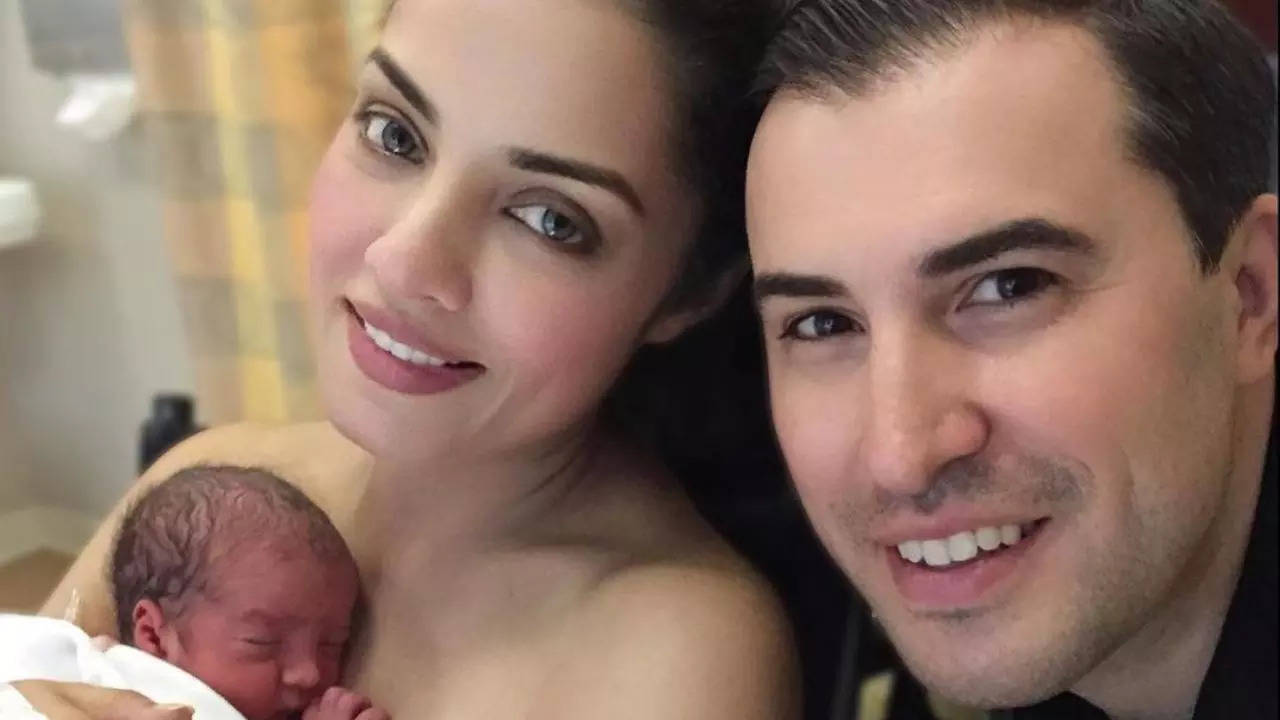Celina Jaitley Opens On Son's Death After Premature Birth; Know The Complications, Causes
Celine Jaitley recently opened about the loss of her premature baby in 2017 due to a heart condition. In an Instagram post, the actress speaks about losing one of her twin boys and the other baby who was in the NICU for three months. Read on to know the complications and causes of premature births.

Celina Jaitley Opens On Son's Death After Premature Birth (Picture credit: Instagram/ Celina Jaitley)
Celina Jaitley in a recent Instagram post shared pictures of her late son Shamsher and shared about the loss of her premature baby in 2017 due to a heart condition. In the post, she says that sharing her story would help other parents who underwent similar experiences. Jaitly gave birth to two boys in 2017 but lost one to a heart condition. It was her second twin pregnancy after she gave birth to boys in 2012.
Sharing the pictures, the actress wrote, “It took me 5 years to come to terms with this episode of our lives but I have finally summoned the courage to talk about my ordeal to help many parents who reach out to @haag.peter & I as they deal with the trauma of preterm birth and loss of a baby. Peter n I want such parents to know that they can get through this. In personal experience we both can vouch that your Preemie baby is a true survivor. #preemies show us the power of faith & prayer and the fight of the human spirit. Remember that most #prematurebabies survive and live completely normal, healthy lives. PS: Preterm is defined as babies born alive before 37 weeks of #pregnancy are completed.”
She also added, “The outcome of our 2nd spontaneous #twinpregnancy was bittersweet due to Baby Shamsher’s loss due to a heart condition.( I went into labour at 32 weeks due to my fathers sudden passing.) It was very difficult for Peter n I but we smiled after many million tears in this photograph (1) to seal a happy memory for our blessing baby @arthurjhaag arrival as he went straight to NICU in an incubator for 3 months immediately upon his arrival.”
Premature births poses serious health risks to the baby as well as the mother. There are different types of preterm births; late preterm where the baby is born between 34 and 36 weeks. In moderate preterm, the baby is born between 32 and 34 weeks. In very preterm and extremely preterm, the babies are born before 32 weeks and before 25 weeks respectively.
Complications caused due to preterm birth
A fetus needs a full term of 39 weeks in the uterus to develop. If they are born prior to that, they might not be completely developed which then gives rise to serious health problems. Preterm babies tend to suffer from heart, brain, lung or liver problems.
Here are some of the common conditions that affect preemie babies:
- Patent ductus arteriosus (PDA), or abnormal blood flow in the heart
- Intraventricular haemorrhage, or bleeding in the brain
- Necrotizing enterocolitis, or inflammation of the intestines
- Apnea of prematurity, or temporary pauses in breathing during sleep
- Bronchopulmonary dysplasia, or underdeveloped lungs
- Neonatal sepsis, or blood infection
- Retinopathy of prematurity, or underdeveloped blood vessels in the eye
Premature babies are also at a higher risk of developmental challenges. They may have health issues later in life, including cerebral palsy, hearing and vision problems, learning disabilities and poor growth.
Causes of preterm birth
Premature birth can happen suddenly without any certain reason. However, here are some causes why people go into premature labour:
- Chronic health conditions, such as diabetes or infections
- Multiple pregnancies, such as twins or triplets
- Problems with their uterus or cervix
- Too little time (less than 18 months) between pregnancies
- Preeclampsia (high blood pressure during pregnancy)
- Vaginal bleeding or infections during pregnancy
- Drug or alcohol abuse
Disclaimer: Tips and suggestions mentioned in the article are for general information purposes only and should not be construed as professional medical advice. Always consult your doctor or a dietician before starting any fitness programme or making any changes to your diet.
Trending:
End of Article
Subscribe to our daily Lifestyle Newsletter!





Related News





7 Probiotic-Rich Foods To Boost Your Summer Diet

Different Types Of Pregnancy: Symptoms To Watch Out For

6 Morning Rituals To Balance Cortisol And Beat Stress

Illusion Quiz For Type A Personality: Do You See Trees, Roots Or Lips?

Heart Health To Joint Support: 5 Health Benefits Of Incorporating Oily Fish Into Your Diet









